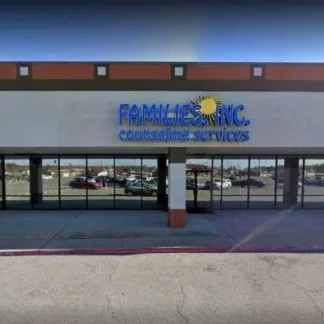Families of Arkansas - Jacksonville Clinical Office
Jacksonville, Arkansas, 2126 N. 1st St., Ste. F, 72076
Available Programs
- Adolescence program
- Adult program
- Elderly program
- Hearing impaired program
- Young adult program
Insurance and Financial
- Medicaid
- Self-pay options
- Private insurance
- Medicare
About this Facility
Families of Arkansas - Jacksonville Clinical Office provides family-centered medical care to individuals of all ages in Jacksonville, Arkansas. If addiction is the primary diagnosis, clients may need to be referred to an alcohol and drug rehab center.
Families of Arkansas – Jacksonville Clinical Office focuses on supporting individuals through a wide array of medical care services. These services are offered on an outpatient basis. The outpatient program includes an allergy clinic, labs and radiology, a pharmacy, skin renewal services, and traditional medical care.
Families of Arkansas – Jacksonville Clinical Office accepts most insurance plans, including Anthem, Blue Cross Blue Shield, Cigna, ComPsych, Amerigroup, Magellan, Kaiser, United Healthcare, Aetna, TRICARE, Beacon, Wellmark, and HCSC. Out of network benefits may vary, so it is important to verify insurance coverage prior to receiving services.
Contact us for more information: (501) 982-5000

Contact Families of Arkansas - Jacksonville Clinical Office
Connect with Families of Arkansas - Jacksonville Clinical Office by calling their admissions team directly.
(501) 982-5000 Website Get Directions